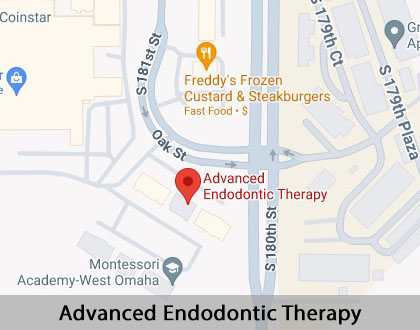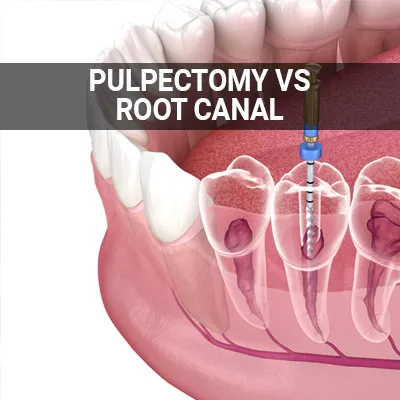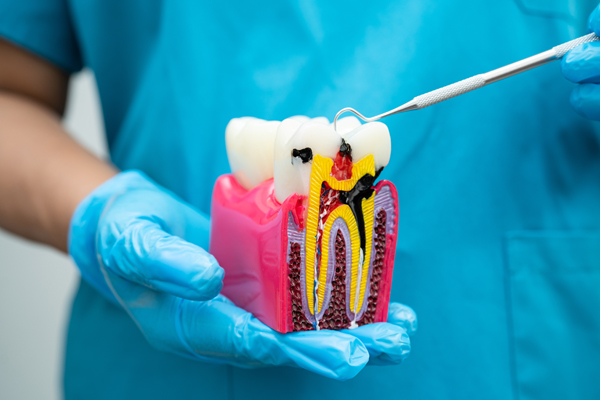How an Endodontist Saves Teeth Omaha, NE
By saving teeth, endodontists preserve the natural appearance and utility of a tooth, without compromising the external structure. They focus on the soft tissue inside a tooth (the dental pulp), helping the tooth's outer structure remain intact. Endodontic or root canal treatments can help save teeth from deep decay, injury, or trauma.
If you are looking for teeth-saving therapies, let Advanced Endodontic Therapy in Omaha help. Our team offers a range of endodontic procedures, including root canals treatment, so call us at (402) 403-6988 to learn more.
Importance of Saving Natural Teeth
There are many reasons endodontists make saving natural teeth a priority. The benefits of saving natural teeth serve both form and function by helping one maintain a natural smile and continue eating the foods they love. Tooth extraction can cause other teeth in the mouth to shift and affect chewing ability. An artificial tooth requires multiple procedures, which can be costly and increase treatment time. Before considering pulling a tooth, ask about endodontic therapy to save it.
“The benefits of saving natural teeth serve both form and function by helping one maintain a natural smile and continue eating the foods they love.”
Endodontists Save Teeth
Endodontists specialize in saving teeth. When deep decay or trauma affects the soft center of the tooth — the pulp — the patient should first opt for an endodontic or root canal treatment. Rather than pull the tooth, an endodontist saves the tooth by removing the infected or inflamed dental pulp and possibly the root tip.
The inside of the tooth receives a filling, while the exterior portion of the tooth is restored. The final step in this process involves placing a crown over the treated tooth to help support it and protect it from future damage.
“An endodontist saves the tooth by removing the infected or inflamed dental pulp and possibly the tip of the root.”
Signs a Tooth May Need Saving
When the dental pulp sustains damage due to a deep cavity, a crack or chip in the tooth, repeated dental procedures, or other trauma, the tissue breaks down, and bacteria accumulate. Bacteria in the root canal of a tooth can lead to a serious infection or an abscessed tooth, requiring saving.
Signs that a tooth may need saving include:
- A discolored tooth
- A persistent or recurring bump on the gums
- Sensitivity or pain when exposed to hot or cold temperatures
- Severe tooth pain upon chewing or applying pressure
- Swollen or tender gums
However, it is possible for some cases to occur without any noticeable symptoms.
“Bacteria in the root canal of a tooth can lead to a serious infection or an abscessed tooth, requiring saving.”
Check out what others are saying about our dental services on Yelp: How an Endodontist Saves Teeth in Omaha, NE
Teeth After Dental Trauma or a Root Canal
If a tooth is almost knocked out — rather than extract the tooth, an endodontist can save the tooth by removing the damaged pulp and replacing it with dental filler to retain the structure of the tooth. The dental pulp contains nerves and blood vessels, so the tooth gets devitalized after removing the pulp. However, the restored tooth still looks, feels, and functions like a normal tooth.
Given that the tooth gets devitalized, the patient will need to approach the restored tooth with extra care as it will be susceptible to reinfection and fractures. This includes adopting good oral hygiene habits, a diet rich in mouth-healthy foods, and regular dental checkups.
“…the patient will need to approach your restored tooth with extra care as it will be susceptible to reinfection and fractures.”
Questions Answered on This Page
Q. Why is it important to keep my natural teeth?
Q. How does an endodontist save teeth?
Q. What are signs that a tooth needs saving?
Q. What will the tooth be like after a root canal?
Q. How can patients keep their natural teeth?
People Also Ask
Q. What can happen if a tooth infection is left untreated?
Q. How can I tell if I have a cracked or broken tooth?
Q. When would a patient need a pulpectomy?
Q. What problems can endodontic treatment address?
Keeping Natural Teeth
Keeping natural teeth is a priority for dental health. The best approach to keeping teeth is preventative: practice consistent oral hygiene habits (brush twice daily, floss once daily), visit the dentist every six months and avoid foods damaging to teeth (like hard or sticky foods).
Good oral hygiene is essential for preserving natural teeth, especially after one has a root canal treatment. While restored teeth remain stronger than artificial teeth, the patient will need to pay attention to the root canal-treated tooth to avoid potential reinfection or injury.
“Keeping natural teeth is a priority for dental health.”
Frequently Asked Questions
Q. Is a root canal procedure painful?
A. The procedure itself is not nearly as uncomfortable as most people expect it to be. The endodontist will numb the area well, so you should only feel some pressure as the practitioner works on the area. You will be sent home with thorough aftercare instructions, including how to deal with any soreness after the procedure. Many times, people find the discomfort can be managed with over-the-counter pain medications.
Q. How much does a root canal procedure cost?
A. The cost varies by case but is generally much less expensive than having a tooth replaced. The majority of dental insurance plans cover at least a portion of the cost. We advise each patient to check with their dental insurance provider for specifics on their coverage.
Q. What is a good way to find an endodontist?
A. It has never been easier to find an endodontist. The recommendation of friends and family is often the first place people turn, but you can also ask your dentist for recommendations. The internet is also a valuable tool because you can read reviews online for local endodontists. There is even an endodontist search tool provided by the American Association of Endodontists.
Q. How common are complications after a root canal?
A. Though complications are rare, they can happen. However, our team is well equipped to deal with them. You should contact our office if there are any signs of infection after your procedure or you have an allergic reaction to any medication. You should also contact our office if the crown feels loose or comes off. Your aftercare instructions will include detailed information about what to expect after the procedure.
Q. How long will my root canal procedure take?
A. The answer to this question varies from patient to patient. A root canal can take anywhere from 90 minutes to 3 hours. Sometimes the procedure is done over two appointments. Our team will be able to give you a better idea of what you can expect after examining your case.
Start Feeling Better – Visit Us Today
By visiting us as soon as possible, our team can help get you the professional treatment you need. Instead of waiting around and allowing the symptoms to get worse, we can provide you with treatment options.
Definitions
Learn More About Endodontics for Saving Teeth
Saving your natural teeth benefits your health, provides better cosmetic results, and is cost-effective by sparing you from additional dental visits. Because you should always try to save your tooth whenever possible, endodontic treatment should be your first choice following dental trauma or infection.
If you are in search of an endodontist in Omaha, let Advanced Endodontic Therapy help. Call us at 402-403-6988 to learn more about our services and policies.
Helpful Related Links
- American Association of Endodontists. Home Page. 2024
- Cleveland Clinic. Dental Emergencies. 2024
- Healthline. What to Expect During a Tooth Extraction. 2024
- MedlinePlus. Root canal. 2024
- National Library of Medicine. Use of devitalizing agents. 2024
- National Library of Medicine – StatPearls. Oral Surgery, Extraction of Roots. 2024
- ScienceDirect. Pulpectomy. 2024
- Verywell Health. Tooth Pulp Function and Inflammation. 2024
About our business and website security
- Advanced Endodontic Therapy was established in 2008.
- We accept the following payment methods: Cash, Discover, MasterCard, and Visa
- We serve patients from the following counties: Douglas County, Dodge County, Lancaster County, and Sarpy County
- We serve patients from the following cities: Omaha, Benson, Florence, Bellevue, Fort Calhoun, Papillion, Lincoln, Bennington, Plattsmouth, Fremont and Elkhorn, Missouri Valley, and Council Bluffs
- Norton Safe Web. View Details
- Trend Micro Site Safety Center. View Details
Back to top of How an Endodontist Saves Teeth










